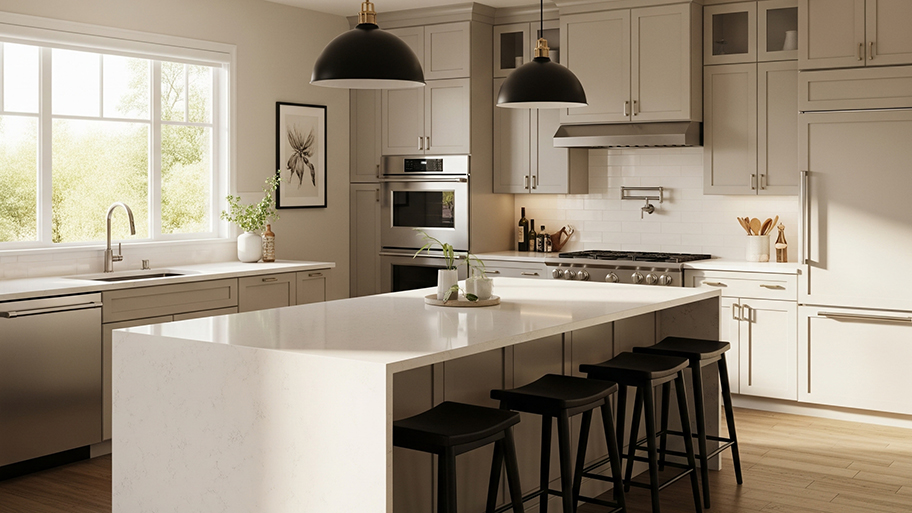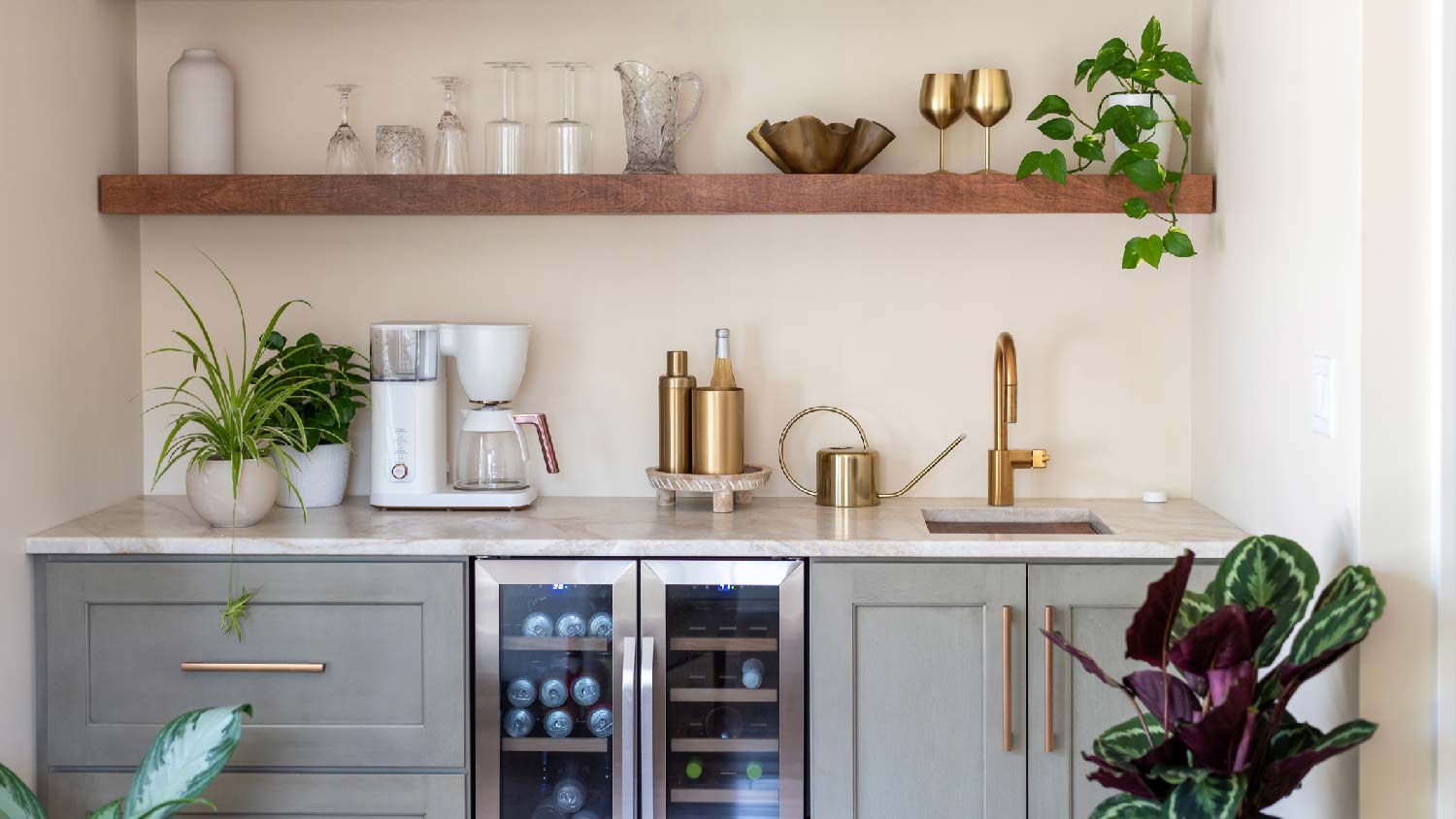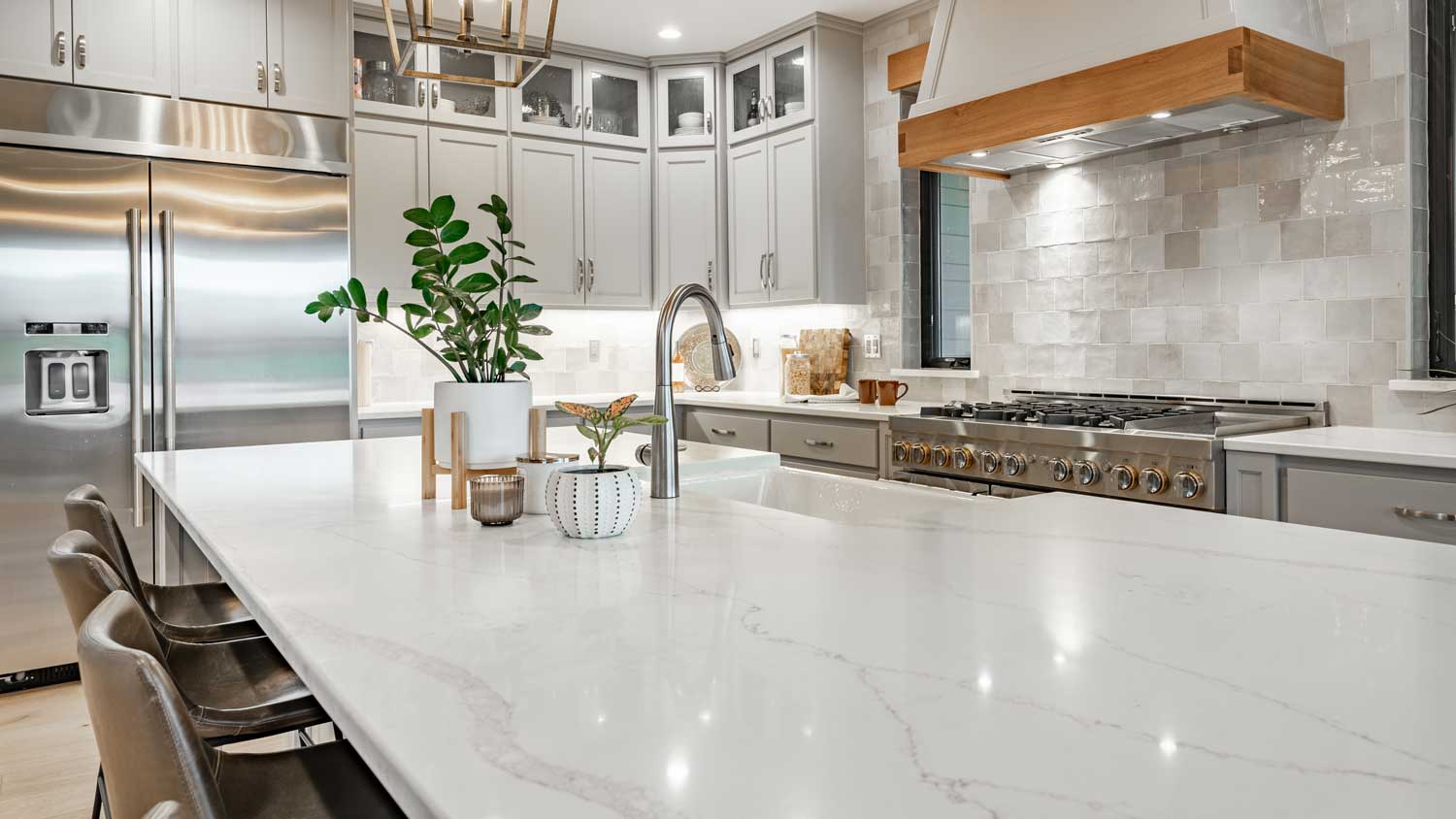
Marble countertops have yet to go out of style, and likely won't any time soon. This strong, durable, and stunning material melds with most kitchen, bathroom, and even dining room designs. But how much do marble countertops cost to install?
Some say it is better than natural stone


Engineered stone can look like the real deal, and some argue it is even better than natural stone. Engineered stone materials are made from minerals and binders and can be more durable and longer-lasting than natural options. Whether you want to use it for your kitchen countertop, wall cladding, flooring, or bathroom, there are many reasons to choose factory-made stone countertops.
The main difference between engineered and natural stone is that engineered stone is made in a factory, whereas natural stone is quarried by people and machines from the earth.
Engineered stone consists of crushed minerals mixed with adhesive. Most of the engineered stone on the market is quartz. The actual amount of minerals in the end product varies among manufacturers, but in general, engineered stone contains crushed quartz, granite, marble, other natural stones, ceramics, silica, glass, and more. These minerals are bound together with cement or resin to make slabs.
“Engineered stone is a great option,” says Bob Tschudi, Angi Expert Review Board member and general contractor in Raleigh, North Carolina. “Not only is it easier to fabricate than natural stone, but it also holds its value when selling your house. And it has the same high-end look as natural stone.”

Manufacturers use different amounts of quartz in their products. Some brands promise to use a certain amount of raw material, like Caesarstone®, which contains up to 90% quartz minerals. It is a popular choice for kitchen countertops, but you can also use it in your bathroom and indoor flooring.
“You can’t go wrong with quartz,” says Tschudi. “It has the same look and feel as natural stone, and it’s very easy for contractors to cut and install.”
The cost to install a quartz countertop ranges from $70 to $100 per square foot.
A top reason why people consider recycled glass countertops is that they are eco-friendly. Manufacturers make slabs with recycled glass, pigment, and a binder, such as cement or epoxy resin. The slabs produced with cement contain no chemicals, although they require more maintenance. You will need to seal the countertops, reseal annually, and wax them twice a year.
Another reason is that this type of stone has a unique appearance. There are various color options like neutral beige tones, bright blue, red, and black. Most feature an eye-catching mosaic glass pattern that adds a lot of character to your home. Opt for recycled glass countertops with quartz and natural elements like oyster shells and champagne-colored sea glass for a true showstopper. These manufactured stone countertops are fantastic for vanities, indoor flooring, and even fireplaces.
Recycled glass countertops cost around $65 to $140 per square foot.
Sintered stone differentiates itself because it contains no binders or adhesives. Manufacturers make these slabs with minerals put under immense pressure and heat. Notably, sintered stone is more durable than quartz and useful in many indoor and outdoor applications. This option will run from $60 to $100 per square foot.
Manufacturers create cultured marble in molds using crushed minerals and resin. Although not ideal for the kitchen, you can install cultured marble in bathrooms. Unlike natural marble, cultured marble is nonporous, and you can fix scratches with a gel. It costs $10 to $35 per square foot.
Agglomerate stone tiles are crushed granite or marble bound with polyester or epoxy resin. They are sensitive to UV radiation and can show wear quickly, so install these tiles indoors. They cost $7 to $12 per square foot.
If you are looking for an engineered stone for flooring, consider limestone tiles. Manufacturers make these tiles with a limestone composite and polymer resin. Unlike ceramic tiles that can take days to install, limestone tiles can be installed and grouted in one day. It costs $3 to $5 per square foot.
From average costs to expert advice, get all the answers you need to get your job done.

Marble countertops have yet to go out of style, and likely won't any time soon. This strong, durable, and stunning material melds with most kitchen, bathroom, and even dining room designs. But how much do marble countertops cost to install?

Are you getting close to deciding on Caesarstone® countertops for your home? Discover all the details behind Caesarstone® countertop costs in this guide.

New quartz countertops can give any kitchen a facelift. Find out quartz countertop costs, including quartz slab prices and the cost of installation.

Are you considering adding soapstone counters to your home? Here are the pros and cons of this countertop material to consider before making your decision.

Quartz and quartzite are durable and attractive kitchen countertop materials. Learn the differences between quartz vs. quartzite countertops to find the best option.

Learn how to seal marble countertops to preserve this porous stone’s integrity. This step-by-step guide covers sealant testing and application.